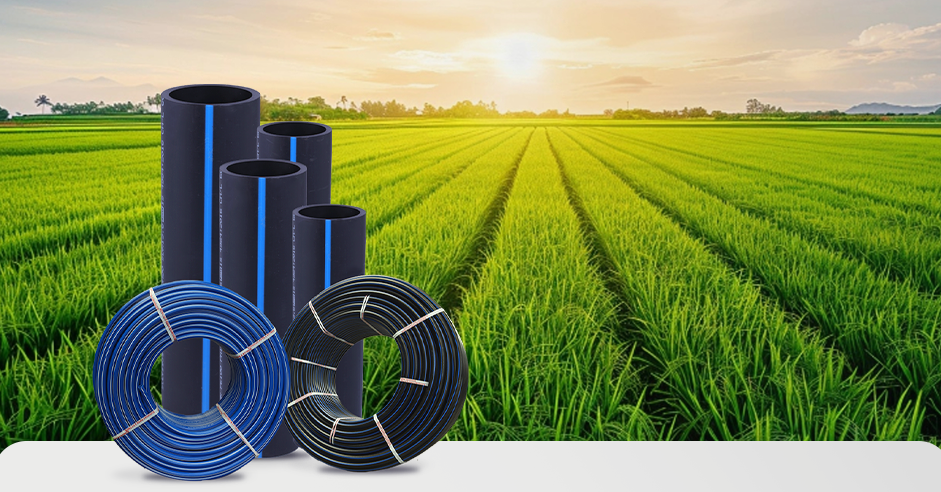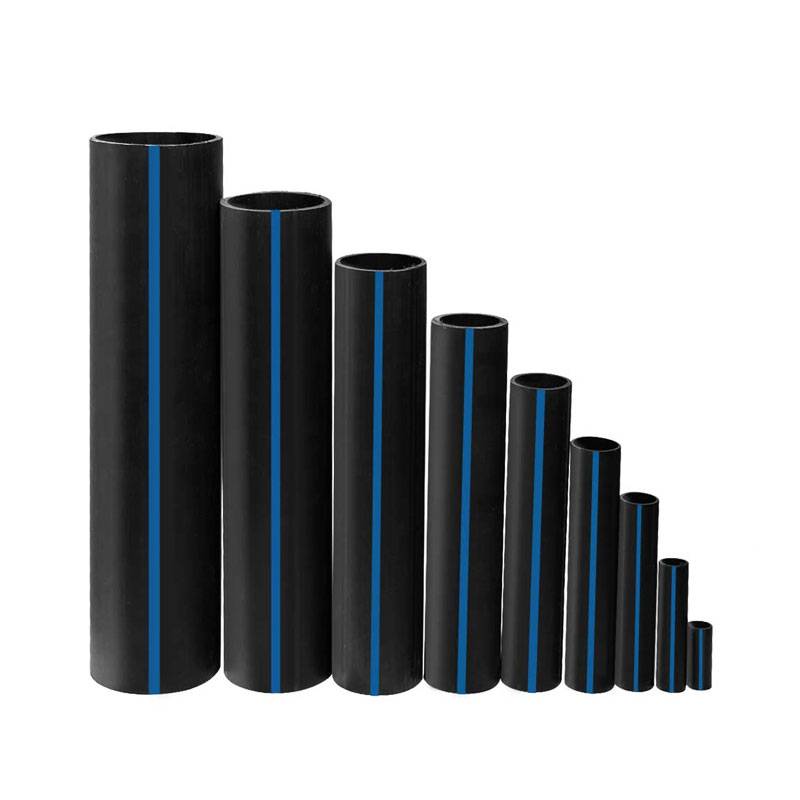Why hdpe pipe in stock Midland TX Is A Must-Have for Local Industries
A Comprehensive Guide to the Numerous Usages of HDPE Pipeline in Construction and Industry
HDPE pipes have arised as an essential part in modern building and construction and industrial applications. Their one-of-a-kind residential properties, such as resistance to deterioration and light-weight layout, make them ideal for a variety of uses. From water systems to farming watering, HDPE pipes provide solutions that enhance effectiveness and sustainability. Comprehending their varied applications is important for professionals seeking to enhance framework. What particular advantages do these pipelines bring to each industry?
Water and Distribution Systems
Supply of water and circulation systems are crucial components of city framework, typically relying upon high-density polyethylene (HDPE) pipelines for their sturdiness and efficiency. These systems transportation drinkable water from therapy centers to customers, making certain accessibility and safety and security. HDPE pipes are favored for their resistance to deterioration, chemicals, and severe temperature levels, which enhances their long life and decreases maintenance prices. Additionally, their lightweight nature enables simpler setup and transportation, making them perfect for numerous metropolitan and rural applications.
The versatility of HDPE pipelines enables them to be set up in tight spaces and around obstacles, decreasing the need for comprehensive excavation (American Plastics HDPE Pipe Manufacturing). Their smooth interior surface lowers friction losses, boosting water circulation rates. As cities continue to grow, the need for reliable supply of water systems raises, positioning HDPE pipelines as a sustainable service for modern framework tasks. Their tested record makes them a preferred option amongst designers and metropolitan planners alike
Wastewater Management and Therapy
Reliable wastewater management and therapy are crucial for preserving public health and ecological quality. HDPE pipes play an essential role in this process due to their toughness, resistance to corrosion, and ability to withstand severe chemicals. These pipes are typically used in numerous applications, consisting of sewer systems, stormwater drainage, and wastewater treatment centers. Their lightweight nature promotes easier setup and transport, lowering labor prices and time.
In enhancement, HDPE pipelines have a smooth indoor surface area that reduces friction loss, promoting effective flow prices. They are also less vulnerable to leaks and failings compared to traditional products, making certain that impurities are included efficiently. Their flexibility allows for adaptability in various soil problems, making them ideal for varied environmental setups. As sectors increasingly prioritize lasting techniques, the use of HDPE pipes in wastewater administration systems lines up with goals for reducing ecological effect and improving source recovery.
Agricultural Irrigation Solutions
In agricultural settings, effective watering remedies are essential for maximizing crop returns and managing water sources. HDPE (High-Density Polyethylene) pipelines play an essential function in modern-day irrigation systems because of their durability, versatility, and resistance to rust. Their capacity to hold up against high stress makes them suitable for both surface area and subsurface irrigation applications, guaranteeing uniform water distribution throughout areas.
Farmers can make use of HDPE pipelines in drip irrigation systems, which provide water straight to plant roots, decreasing waste and advertising healthy and balanced growth. Additionally, these pipelines are lightweight and easy to set up, minimizing labor costs and installment time. Their lengthy life expectancy and low maintenance requirements further enhance their allure in farming methods.
HDPE pipelines are environmentally pleasant, as they can be recycled and do not leach damaging chemicals right into the soil. blocked sewer drain This makes them a sustainable choice for farmers intending to embrace eco-friendly farming techniques while making the most of performance.
Industrial Applications and Processes
Flexibility is a hallmark of HDPE pipelines, making them vital in numerous industrial applications and procedures. These pipelines are widely made use of in chemical processing markets due to their superb resistance to a wide variety of destructive materials. HDPE's lightweight nature, incorporated with high tensile toughness, enables easy setup and long-lasting efficiency sought after environments.
In the oil and gas sector, HDPE pipes play a crucial role in transporting hydrocarbons and gases, thanks to their longevity and flexibility - hdpe pipe in stock Midland TX. In addition, they are employed in mining operations for the transport of slurry and other products, where conventional piping systems may fall short
HDPE pipes are progressively made use of in making centers for water supply lines and wastewater monitoring. Their capacity to hold up against severe temperature levels and stress makes them ideal for a selection of industrial procedures. In general, HDPE pipelines add substantially to performance and safety across varied industrial applications.
Stormwater Management and Water Drainage Solutions
Stormwater Recommended Site monitoring and drainage systems are critical components in metropolitan infrastructure, developed to take care of excess rains and lower flooding risks. High-density polyethylene (HDPE) pipelines are significantly utilized in these systems as a result of their toughness, versatility, and resistance to corrosion. These pipelines successfully deliver stormwater away from inhabited areas, minimizing surface area runoff and protecting against waterlogging.
HDPE's light-weight nature promotes much easier installation, minimizing labor prices and building time. Additionally, its resistance to chemicals and environmental stress factors warranties long life and dependability in different environments. Along with traditional drain applications, HDPE pipelines are click here for more additionally used in ingenious services such as green framework, which includes rainfall yards and permeable pavements.

Frequently Asked Concerns
Exactly How Does HDPE Pipeline Compare to PVC Pipeline in Price?
In basic, HDPE pipe tends to be much more pricey than PVC pipe due to its boosted durability and flexibility. Long-term cost factors to consider, such as maintenance and life expectancy, may prefer HDPE in specific applications.
What Is the Life-span of HDPE Water Lines Under Numerous Conditions?
HDPE pipelines usually have a life-span of 50 to 100 years, depending on environmental conditions, installation methods, and usage. Variables such as temperature, dirt type, and direct exposure to chemicals can greatly affect their sturdiness.
Can HDPE Piping Be Recycled After Use?
Yes, HDPE pipes can be reused after usage. The reusing process includes melting down the material, permitting it to be repurposed into brand-new products, consequently promoting sustainability and reducing environmental effect related to plastic waste.
Are There Any Type Of Specific Setup Obstacles With HDPE Pipelines?
Installation difficulties with HDPE pipelines include appropriate jointing methods, ensuring appropriate trench conditions, and handling thermal expansion. Additionally, proficient labor is required to deal with specialized tools, which can complicate the setup procedure in various environments.

What Certifications Should I Seek When Acquiring HDPE Water Lines?
When purchasing HDPE pipes, one need to seek qualifications such as ASTM, AASHTO, and ISO, which validate quality and conformity with market requirements, assuring sturdiness and performance in different applications. - American Plastics HDPE Pipe for Oilfield